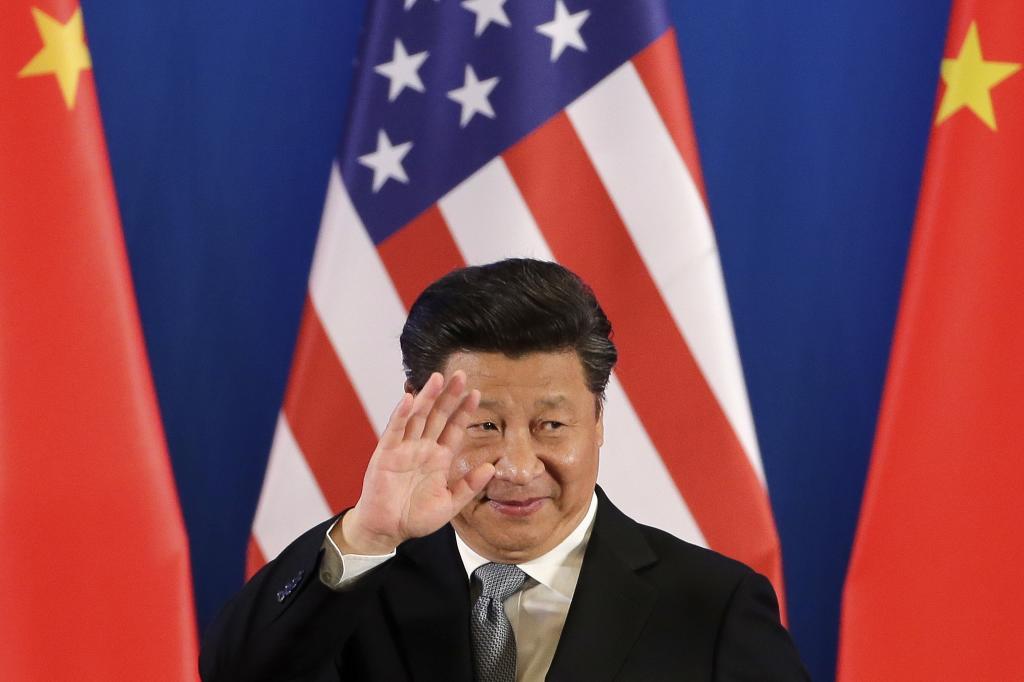In the most important political events in China in recent years, it has been common to see groups of invited journalists from friendly countries in Latin America, Africa, the Middle East, and some small and remote Pacific islands in Beijing. The trip and expenses are covered by the propaganda departments of the ruling Chinese Communist Party (CCP). Last March, during the National People's Congress (NPC), the annual meeting of the Chinese Parliament, an Argentine reporter mentioned that, in addition to covering the important political gathering in the capital, the Government of Xi Jinping had organized a six-month tour of the giant Asian country for its guests. A seduction policy towards the international press that has also reached Spain with increasing invitations to journalists to attend seminars, cultural tours, or visits to leading technological companies.
The purpose of many of these trips is to show how the complex political machinery works from within, in addition to enjoying sumptuous banquets with local delicacies and immersing themselves in the rich and diverse millennia-old culture in a vast country where 56 ethnic groups coexist. "First, they pampered us. Then, the Chinese officials who accompanied us throughout the trip asked us to reflect in our articles the true face of China that much of the Western press tries to hide," explained the Argentine journalist.
Among the state organizations that finance these trips is the China International Communication Center (CICG), an institution that directly depends on the CCP Central Committee, one of the main leadership bodies, formed by party leaders, the military, provincial leaders, and top executives of state-owned enterprises. The CICG is one of the agencies responsible for promoting China abroad and publishing governance and ideology manuals of the omnipresent Xi Jinping in various languages.
Every year, through the Advanced Institute of International Studies and Training, one of the public entities that are part of the CICG, they also organize the so-called "courses for foreign journalists" in Beijing, usually attended by journalists from developing countries in the Global South. This week, for the first time, journalists, academics, and analysts from Spain have been invited to the new edition of a course that, more than journalism classes in a country where overwhelming censorship prevails over all media, is marketed as a cultural exchange to achieve "a richer and more nuanced view of contemporary China among Spanish communication professionals."
The event includes the China Chair Foundation, a think tank very close to Beijing dedicated to promoting relations with the Asian superpower in Spain, which this year took more than a dozen mayors from small Spanish municipalities on a tour of several Chinese cities.
"Beijing hosts the first bilateral training course for Spanish journalists promoted by China," reads a headline published in El Semanal de La Mancha, a digital newspaper from Ciudad Real that has its director, Rosalinda Tejera, in Beijing as one of the invited journalists.
According to the information published by this newspaper, a total of "26 Spanish journalists and experts from 10 different organizations are attending the course, including China Chair, Mundo Global, and El País, who will participate in conferences, institutional visits, and academic and cultural exchange activities for ten days."
The course was opened with a speech by Guan Zhiyong, one of the deputy directors of the China International Development Cooperation Agency (CIDCA), the agency responsible for foreign cooperation, which sponsored the event, along with the Ministry of Commerce. Guan gave the China Chair representative one of the many volumes translated into Spanish about President Xi's governance model.
"This event is part of the action plan to strengthen the Comprehensive Strategic Partnership 2025-2028 that Spain and China agreed upon in April following the meeting between President Pedro Sánchez and Xi Jinping," said Guan, highlighting that the good relations between both countries have intensified in recent years and that these types of meetings represent "a concrete action to implement the initiatives proposed by President Xi."
The Spanish guests will also visit the headquarters of the state news agency Xinhua and the state-owned CCTV. In China, since 2014, local journalists entering to work in state media have to pass an exam to obtain a press card that allows them to practice journalism.
As explained by Chinese reporters to this newspaper, the test, which includes more technical questions about the profession, addresses the manuals they must study on the ideology of the ruling party and the many regulations that limit press freedom, subordinated to state control based on a vague definition of "social stability" and "national security," despite being formally included in the Constitution. In the Asian country, there are about 2,500 newspapers, most of which are daily newspapers supervised by local governments, in addition to many cities having tabloids edited directly by CCP officials.
"The main Chinese media groups are state-owned and directly controlled by the authorities. The Propaganda Department sends detailed editorial guidelines and censored topics to the media daily. In the eyes of the regime, the role of the media is to be the party's spokespersons. Independent journalists and bloggers who dare to report sensitive information are often subject to surveillance, harassment, detention, and, in some cases, torture," says a report by Reporters Without Borders, recalling how Beijing, within its cyberspace, has blocked access to the websites of many Western newspapers.
